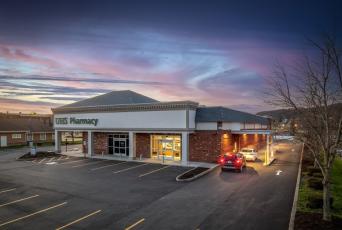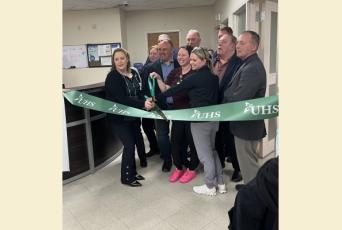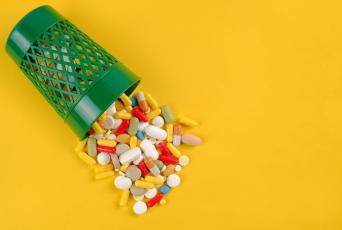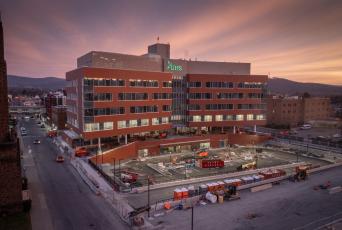
Platelet Rich Plasma (PRP) Injection
What is a Platelet Rich Plasma (PRP) injection?
Platelet Rich Plasma (PRP) injection is a procedure we offer in the Binghamton area that uses growth factors found in your own blood to stimulate and improve healing at sites of injury.
Platelets contain many chemical signal molecules that cause cells to divide, produce protein, and generate a healing response. Whenever you have a cut, platelets aggregate to form the clot, then release these chemical signals to induce healing. By concentrating platelets from your blood and injecting them into an injured joint, tendon, or ligament, we can stimulate more rapid healing
in the area.
What happens in the procedure?
Your blood is drawn, usually from the elbow, and spun in a centrifuge for several minutes. The spinning causes the blood to separate into layers and the layer with the platelets and growth factors is isolated and injected into the treatment area. In order to improve the accuracy of placement, the injection is frequently done with ultrasound guidance. Once injected into the site, the growth factors accelerate healing.
How long does the procedure take?
The actual PRP injection may take from a few seconds to a few minutes depending on the specific site, but you should expect your appointment to take 30-60 minutes. Some research suggests that for certain complaints a series of 3 injections over several weeks may be superior to a single isolated injection.
How safe is PRP?
PRP injections offered at our Binghamton area clinic are extremely safe. PRP is a component of your own blood, therefore you cannot be allergic to it and this eliminates medication side-effects. Occasionally a local numbing medicine is used with some injections, but this is generally very safe as well. As with any injection, there is a small risk of infection, bruising, or injury to nearby structures.
Who can have PRP?
Almost anyone can have PRP. Your doctor may recommend avoiding PRP injections if you have:
- A history of metastatic cancer
- An infection near the treatment site or severe infection elsewhere
- A blood-clotting disorder
- Severe liver disease
Will PRP interact with my medications?
No, PRP does not interact with any medications, but some medications or substances may reduce the effectiveness of PRP. Your physician will advise you of any medications that should be avoided around the time of your injection. Smoking reduces the effectiveness of PRP.
If I get PRP what can I take for pain?
Usually the pain after a PRP procedure is minor. You may take acetaminophen (Tylenol) if desired. Icing is generally discouraged since it will reduce blood flow to the area.
What conditions are treated by PRP injection?
PRP has been used for many conditions, both related to the musculoskeletal system and to other systems. At UHS Sports Medicine in the Binghamton region, we primarily use PRP to treat:
- Arthritis
- Injuries of tendons
- Injuries of ligaments
- Muscle tears
PRP is also used during select surgeries to promote healing.
Interested in PRP?
Please call the UHS Orthopedic Center at 607-771-2220 to schedule an appointment for plasma treatment in the Binghamton area.
UHS News
-
 UHS pharmacy services are open to the publicApril 26, 2024
UHS pharmacy services are open to the publicApril 26, 2024Located in Binghamton, Endicott, Johnson City, Vestal and Walton, our full-service retail pharmacies accept prescriptions from any provider and are open to the general public, processing most insurance carriers.
-
 UHS Delaware Valley Hospital hosts Walk-In Ribbon CuttingApril 24, 2024
UHS Delaware Valley Hospital hosts Walk-In Ribbon CuttingApril 24, 2024Local elected officials, employees, senior leaders and community members stopped by UHS Delaware Valley Hospital on April 23 for a Walk-In ribbon cutting event.
-
 Prescription drug take-back event at UHS Pharmacy Vestal on April 27April 23, 2024
Prescription drug take-back event at UHS Pharmacy Vestal on April 27April 23, 2024UHS Pharmacy Vestal, in conjunction with the Broome County Sheriff’s Office and Binghamton University pharmacy students, is hosting a drive-thru prescription drug collection on Saturday, April 27, from 10 a.m. to 2 p.m.
-
 Technology is at the forefront of UHS Wilson Main TowerApril 22, 2024
Technology is at the forefront of UHS Wilson Main TowerApril 22, 2024When the Wilson Main Tower opens this spring, it will serve patients with a level of healthcare technology unprecedented in the Southern Tier. From the rooftop helipad to the bedside of each private room, beneficial technology will play a key role in the way UHS is revolutionizing care, service and the patient experience.



